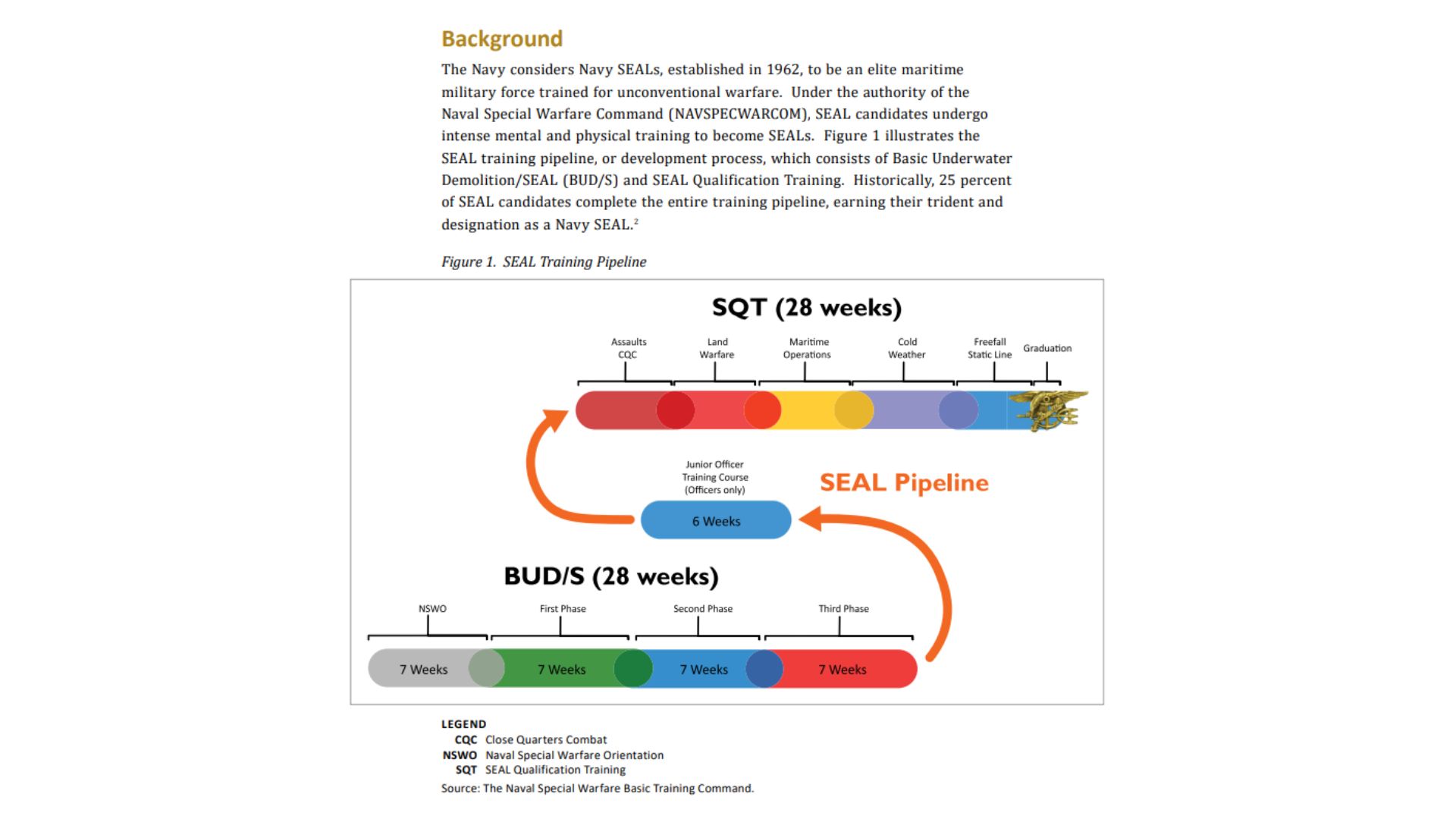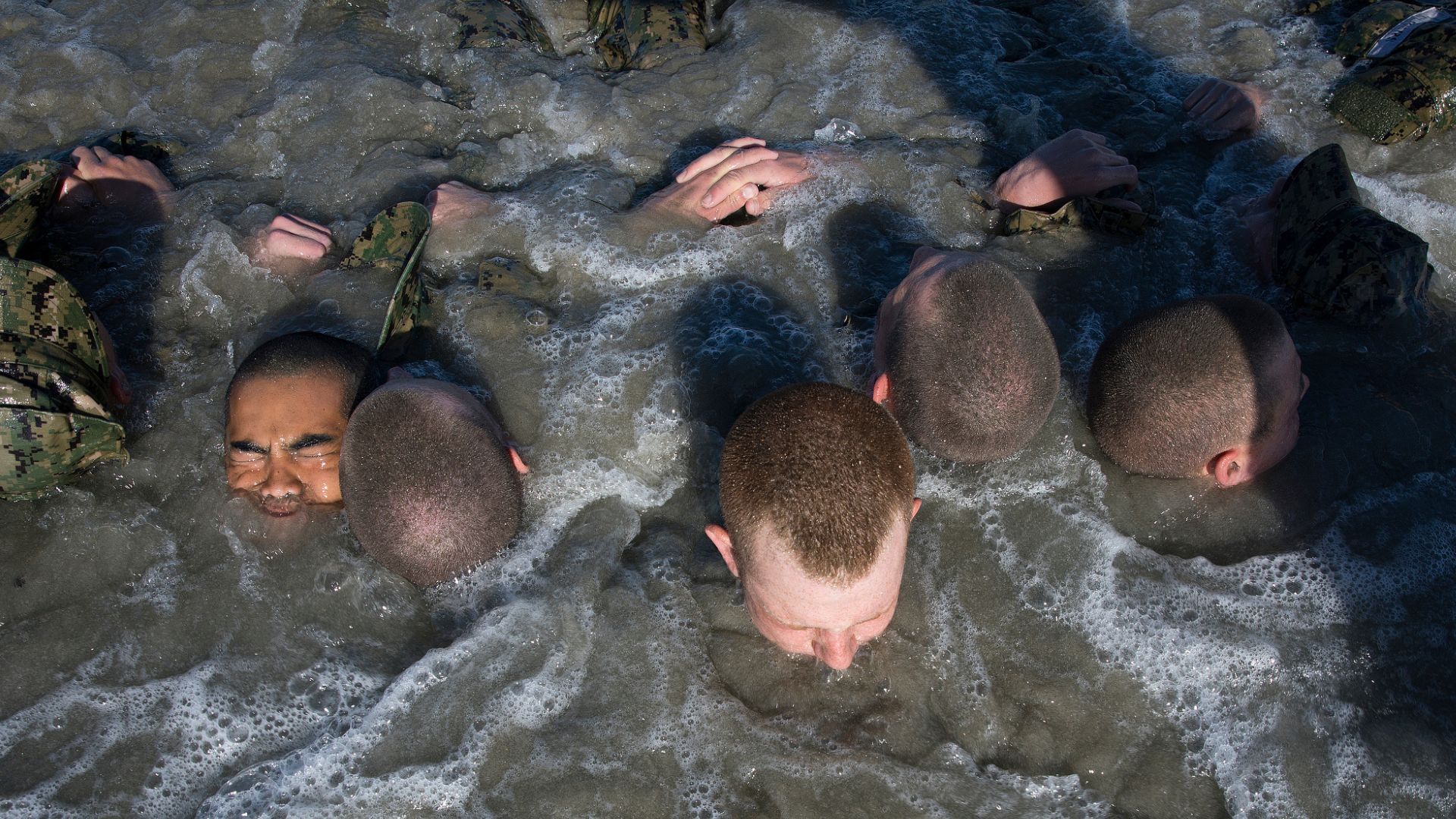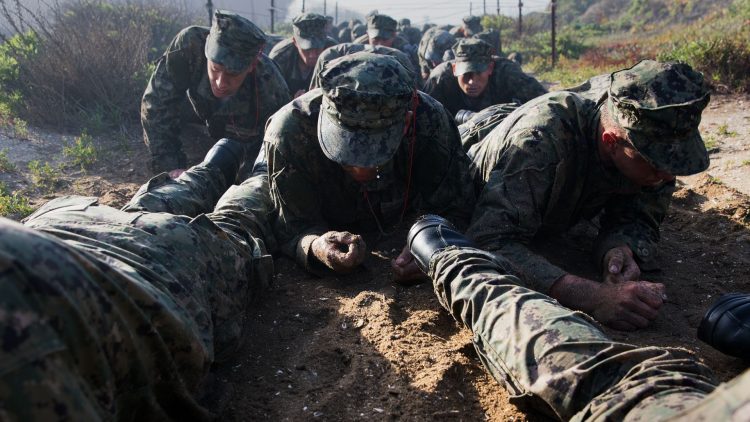2. Enhanced Pneumonia Prevention: To reduce the risk of pneumonia, candidates now receive antibiotic injections before starting BUD/S, with exceptions for those allergic to penicillin.
3. Updated Guidelines for Swimming-Induced Pulmonary Edema: New measures have been put in place to prevent and manage this condition, which affects some candidates during training.
4. Increased Drug Testing Measures: The Navy introduced a special exemption policy allowing for random and unit-wide urinalysis, a step beyond the standard regulations that require probable cause for testing.
Despite these improvements, the report also points out areas where the Navy and DoD still have work to do.
The Need for Clearer PED Policies
One of the key issues raised in the DoD IG report is the lack of a clear definition for performance-enhancing drugs (PEDs) within the Pentagon’s policies.
Currently, there is no uniform standard across military branches that defines what qualifies as a PED, leaving some ambiguity about whether substances like steroids fall under this category.
The report calls for the Under Secretary of Defense, along with other health officials, to review and update drug testing policies to ensure consistency and better enforcement.

Sleep Deprivation: Where Are the Guidelines?
Sleep deprivation is a well-known element of SEAL training, particularly during Hell Week, which is designed to push candidates to their physical and mental limits.
While sleep deprivation may be an operationally relevant tactic, the report finds that there is no official policy regulating how long candidates can go without sleep, how many sleep periods are allowed, or the rationale behind these decisions.
This lack of guidance poses risks, and the report recommends establishing written guidelines to ensure candidates’ safety without compromising the effectiveness of the training.
Medical Staffing and Burnout Concerns
The report also highlights a staffing issue that extends beyond the SEAL training program.
To manage the intense demands of Hell Week, the Naval Special Warfare Center (NSWCEN) often pulls medical staff from other phases of training, potentially leading to burnout.
The DoD IG suggests reassessing the center’s medical manpower to ensure there are enough personnel to meet the demands without overburdening existing staff.
It recommends a thorough evaluation of the center’s medical capabilities, including the adequacy of communication equipment, to ensure that candidates receive timely and appropriate care.
Key Recommendations from the DOD IG Report
The DoD IG report lays out several key recommendations to improve Navy SEAL training and medical care:
1. Update Drug Testing Policies: The DoD needs to establish a clear definition for PEDs and ensure that drug testing policies are consistent across branches.
2. Develop a Sleep Deprivation Policy: Written guidelines should be put in place for the use of sleep deprivation during training, informed by ongoing studies on the effects of fatigue and stress.
3. Reassess Medical Staffing and Resources: The Naval Special Warfare Command should evaluate the staffing and resources at NSWCEN to meet clinical demands, especially during high-stress periods like Hell Week.

Moving Forward: A Culture of Safety and Readiness
The findings from both the DoD IG and Pentagon investigations emphasize the importance of prioritizing candidate safety while maintaining the rigorous nature of SEAL training. By implementing these recommendations, the Navy has an opportunity to foster a culture of trust and professionalism where candidates are better protected from preventable health risks.
The Navy SEALs are an elite force with a proud history of excellence, and the changes being recommended aim to preserve this legacy while ensuring that future operators are fully prepared to meet any challenge.
With continued focus on medical care, proper guidelines for training practices, and adequate resources, the Navy can uphold its commitment to the safety and readiness of its personnel.
While the path forward may involve balancing rigorous training with practical health considerations, these reports make it clear that the goal is not to weaken the training but to strengthen it by making it safer, smarter, and more effective.










COMMENTS